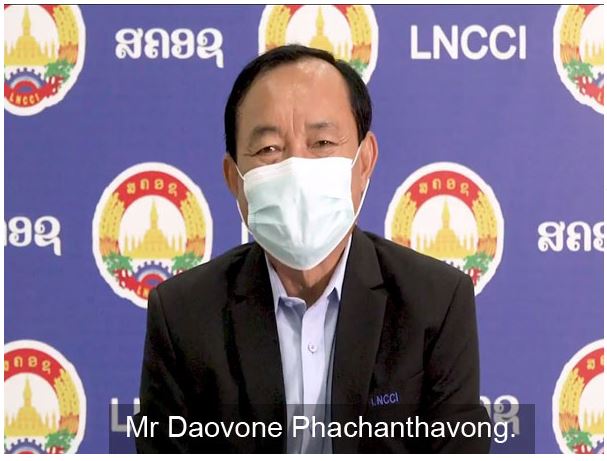Laos: Chamber of Commerce suggests ways to stabilise the kip
The Lao National Chamber of Commerce and Industry has put forward a number of possible solutions to address the fluctuation in currency exchange rates, which has resulted in the ongoing fuel shortage.
The continuing depreciation of the kip against the Thai baht and US dollar means businesses have to spend more to buy the foreign currencies needed to import goods including fuel.
Speaking to the Vientiane Times on Tuesday, the Vice President of the Lao National Chamber of Commerce and Industry, Mr Daovone Phachanthavong, said the kip’s weak value was having a huge impact on the price of fuel in Laos.
“Basically, I congratulate the government for reopening the country to foreign nationals, which makes sense now that a large percentage of the population has been vaccinated. I observe that the biggest problem now is the shortage of foreign currency. Reopening the country to international visitors will help generate more foreign currency through tourist spending,” he said.
Mr Daovone called for the sectors involved to do more to facilitate visitors and not to put obstacles in their way during their stay in Laos.
Secondly, he said, government bodies should prioritise the employment of Lao people in other countries and encourage more people to find work outside of Laos. This would not only provide people with much-needed jobs but would also boost the flow of foreign currency into Laos.
Thirdly, it is essential to radically improve the business environment in order to attract more foreign investment.
“We have suggested that foreign investors be given multi-entry visas for a five-year period, as an incentive to exploring investment opportunities in Laos,” Mr Daovone said.
Fourth, it’s critical for the government to give permission for people of Lao origin currently living abroad to buy land in Laos.
Fifth, he said it was essential for the government to ensure that more agricultural produce is exported, especially rubber, bananas, cassava and sweetcorn. These crops should be cultivated intensively, with the support of the private sector, in areas close to the railway so that shipment to other countries is simple.
“I think that all of these proposals could help the country to deal with fluctuating currency exchange rates and stabilise the kip, especially if more foreign currencies can flow into Laos,” he said.
Because all of Laos’ fuel is sourced from abroad, importers must pay for it in foreign currencies, which are now more and more costly because of the depreciation in the value of the kip.
The weak kip is having a serious impact on the economy, resulting in skyrocketing prices of fuel and consumer goods.
Source: https://www.vientianetimes.org.la/freeContent/FreeConten_Chamber89.php


 English
English




